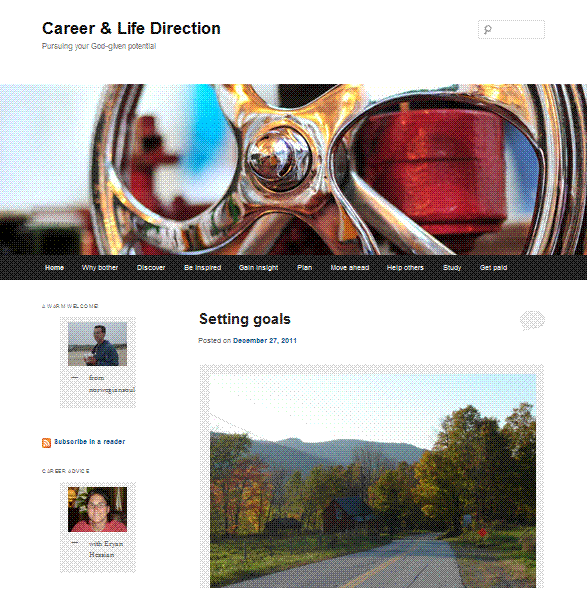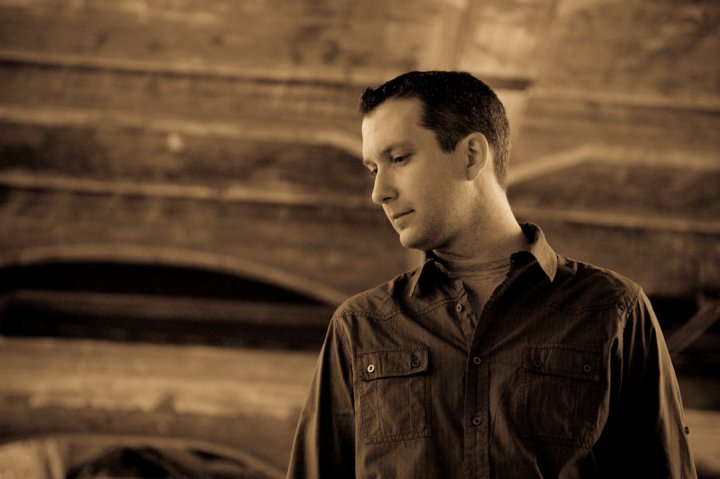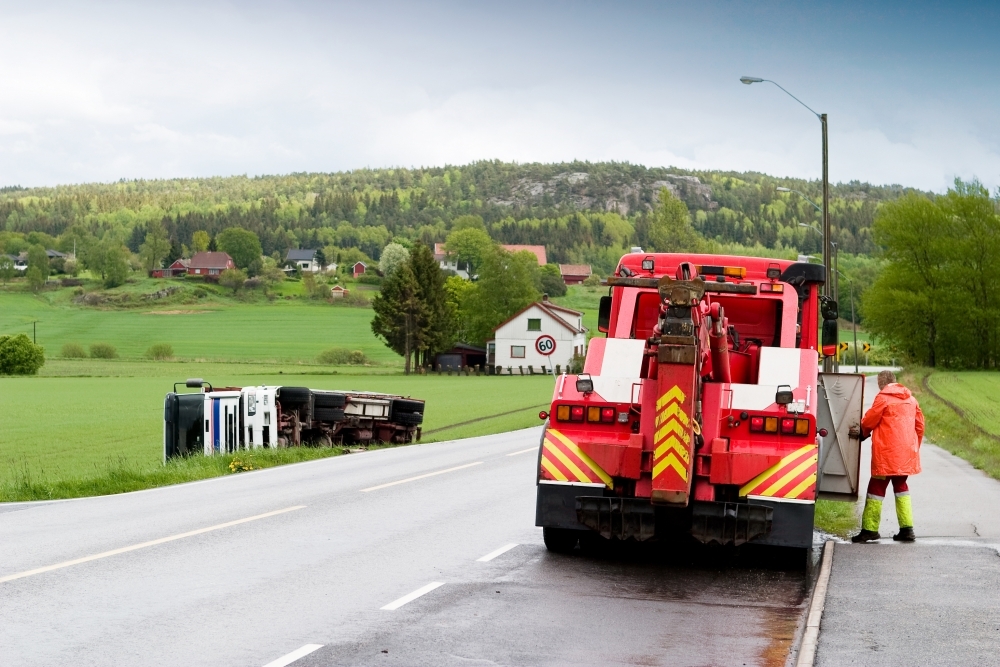Improving thought control
- At December 07, 2018
- By Nathan
- In Effective living
 0
0
It would be wonderful if each person reading this, and each person writing this, could find a way to consistently control their thoughts: routinely pushing out negative and flawed ideas while also consistently pulling in what is positive, true, wise and good.
Wouldn’t that combination of mental activity improve life on this planet?
For human thoughts tend to influence moods, attitudes, words, and inevitably precede actions – for better or worse. Negative thinking typically arrives long before so many corresponding and undesirable practical outcomes. At the same time, disciplined and positive thoughts tend to fuel constructive progress. Thought control is strongly connected to civilized self-control.
Consider two random options by way of example:
Thought #1: “This computer is driving me crazy, and I feel like throwing it out that window over there.”
Thought #2: “This computer is driving me crazy, but I am going to remain calm and use it to accomplish something useful.”
Okay, most people reading this would not likely pick up their laptop, etc. and launch it in the direction of an open window because of the high cost associated with that decision. So this may not be the best illustration. But thinking about that exciting possibility, and meditating on it day after day, might push a few over the edge. After all, the brain is the control center for the body.
If I may offer another more personal example:
A number of years ago I was living in Vancouver, BC, and driving along in the city one day with my wife. We came around a corner and right there before us was a wide-open stretch of highway; this did not happen very often, if ever, in this crowded and congested urban environment. With the rain softly falling on the asphalt, it instantly felt like a great day for a motor car race.
Foolishly, I quickly turned to my wife and grandly declared my intention to wind the car out on this beautiful stretch of road. Before she had a chance to respond, we went blazing over the hill like contestants in the Indy 500 and of course someone was waiting patiently on the other side. The bill for that thrilling 30-second adventure came in at around $140.
Was it worth it? Probably not.
It is old wisdom that there is no freedom except under the law.
The problem remains.
Despite the clear benefits, controlling personal thoughts remains essentially in the same category as herding cats. Why attempt to do what is practically impossible? Those confounded furry creatures are just going to do what they want anyway. In saying this, the point is not to communicate wholesale condemnation but rather to openly acknowledge an enduring problem many face.
But of course I am also using exaggerated language here. The nature of human existence may be complicated but most people still have a sense that despite daily internal struggles a measure of self-control is within reach. Barring serious medical and spiritual conditions, thought control and self-control is usually always possible – at least to some extent.
If an unsuspecting ASUS laptop is flung out an open window on the fourteen floor, disturbing a flock of Canadian geese passing by and landing abruptly in the open sunroof of an Audi Q7 SUV; knocking the owner on the noggin and causing her to swerve wildly, crashing through a barrier and then suddenly dropping down fifteen feet into a lake…my police friends may think this pandemonium could have been prevented. Likewise, the stunned owner may feel she was not absolutely destined to be flailing around in the cold water that day swimming with the ducks.
There was another viable option involving intentional thought control.
But how exactly should we attempt to control our thoughts? What type or form of thought control is the ideal? If it is dangerous to be controlled by our thoughts, is it not just as dangerous to control our thoughts if this statement lacks any definition? This would amount to doing whatever you individually or collectively decide you want to do.
To borrow Peter F. Drucker’s words, “It is old wisdom that there is no freedom except under the law. Freedom without law is licence, which soon degenerates into anarchy, and shortly thereafter into tyranny.” Just laws as opposed to arbitrary and oppressive external controls allow a society to thrive. Similar internal guidance also benefits individuals and communities.
Thought control and self-control is desirable and necessary. But it only works if a clear and inspiring standard exists beyond limited personal, cultural, and establishment perspectives.
© Career & Life Direction 2018. All rights reserved.
Facing adversity
- At September 15, 2018
- By Nathan
- In Effective living
 0
0
Adversity can be overwhelming but it can also function as a friend.
Hmm. What do you think about that statement?
This awkward observation might not seem to count for much when a new difficulty suddenly turns up on the horizon or an old and enduring issue just will not go way. Pointing out the positive potential of a painful situation may sound inappropriate and incredibly insensitive to some. But it’s worth remembering just the same, in the midst of daily life and even during the latest collective crisis or serious personal dilemma.
Hard times can actually help.
While a very small percentage of people on the planet may live, or appear to live, relatively problem-free lives, most mere mortals will have to face one perplexing form of adversity after another culminating with the daunting experience of death. Isn’t that an encouraging thought? Sure, there is more to life than endless struggles and difficulties. But hardship is still present more often than not whether we like it or not; it’s part of the ancient package.
People that acknowledge God may be tempted to think that this good and powerful personal being exists primarily to make life easier and to facilitate lasting personal and group success. Of course it all depends how you define this term and when.
But how many prominent characters in the Bible had easy lives?
Aside from the assorted kings listed and a few powerful religious leaders, maybe two or three? Life was arguably quite satisfying for famous individuals like Joseph, Paul and Mary, etc. but their experience was often difficult, incredibly challenging and difficult, nonetheless.
Know anyone who has been sold as a slave by their own family members? When was the last time you heard of someone being stoned with real stones? Ever had to flee to another country because some local tyrant was trying to kill your kids?
Hello adversity!
Affliction is a good man’s shining time. – Edward Young
All too often adversity comes across as one more meaningless and far less enjoyable experience stacked up alongside all the others. Unfortunately, many are tempted to get out or at least check out if they can. After all, euthanasia is now legal in Canada and hundreds of marijuana stores will be opening soon.
This is to say that the potential value of adversity can be denied by fuzzy religious thinking or distorted by plain old-fashioned secular dogma.
How does adversity function as a friend? Anyone interested in a more detailed treatment of this topic might want to read How to Handle Adversity by Charles Stanley. However, the main point to remember is that adversity can serve as a powerful and positive teaching tool.
In other words, it can improve your perspective.
For example, a lack of tangible and visible success can make a person realize that it was all overrated and somewhat hollow and shallow as a primary objective and measure of self-worth in the first place. It is critically important to have basic needs met. But beyond that, so what if one temporary human being manages to obtain a little more social status, if obtaining higher status is largely what human activity is all about, than another.
In the larger scheme of life…really, who cares? There must be another objective.
So often the level of success each person is able to reach is dependent on many issues and realities beyond their control. This is not to downplay the role of persistent personal effort. But it is necessary to acknowledge the role of multiple external factors. If your country has a very high level of unemployment it is going to be that much more challenging to find a job. And if adequate financial resources are lacking, moving to another country will be very difficult if not impossible.
Experiencing adversity can result in a serious and much needed reevaluation of the overall place of public approval and personal acclaim. It is dangerous to not care at all about what other people think. But it is also possible to place far too much stock in other people’s opinions. Having recently read books about John F. Kennedy, Richard Nixon, Margaret Thatcher, Winston Churchill, Bill Clinton, Ronald Reagan, George Washington, Elizabeth Bowes-Lyon/The Queen Mother, George H.W. Bush and George W. Bush, it is quite clear that public figures should expect a measure of determined opposition.
This is par for the course.
Certainly leaders as well as ordinary citizens can make serious mistakes and may need to feel the weight of public disapproval in order to be motivated to change their behaviour. But a significant percentage of journalists are not going to approve of the current American president no matter what he does. And some people are just not going to like you either. That’s life.
Being on the receiving end of vocal or more subtle opposition may not necessary mean that you are at fault. Not at all. On the contrary, it may indicate that you are doing exactly what needs to be done. It is valuable to learn how to carry on in the face of persistent opposition. Adversity can serve to clarify what is worth metaphorically or literally fighting for.
When Iraq invaded Kuwait in 1990 there was naturally a great deal of debate regarding how best to respond between Margaret Thatcher and George H.W. Bush. Presumably while conceding one of the president’s points, Prime Minister Thatcher famously replied, “Alright then George, but this is no time to go wobbly.”
Adversity has a wonderful way of firming up some of the unwarranted wobbliness in our lives.
© Career & Life Direction 2018. All rights reserved.
One more kind of waste
- At September 29, 2017
- By Nathan
- In Effective living
 0
0
Each society and each person must find a way to make good and careful use of available talents and resources to meet their own needs and the needs of others. This emphasis has followed partly from the theological-based idea of stewardship not to mention the classic golden rule. But regardless of the direct cause, so much human activity and economic output or GDP is connected to meeting basic human needs such as food, shelter, water, security, clothing, heat, electricity, transportation, education, health care, etc.
The list goes on and on.
Now it is noteworthy that some nations and and groups have found a way to become more productive and accomplished at this whole business than others. Why is that? The full answer is likely elusive and complex. But taking the time to explore the contrast between the USA and Canada may provide a few clues. Out of curiosity, do you think Americans or Canadians tend to be more productive and routinely create more value?
Of course any loyal member of a less-productive country or crowd will tend to feel inclined to claim that obviously they have less to work with, that the folks over yonder are privileged in many respects, that their collective lot in life is marked by bad luck or no luck at all, and that the government no less and powerful interest groups are working against the average citizen. And they may well have a point.
Life is not always fair; we all know that. The system could potentially be rigged against us. Insider groups appear to be endless. Connections are critical. And equal opportunity is not a global guarantee. For whatever reason, sometimes events clearly do not turn out in our favour.
Just ask Hillary Clinton or the shareholders at Bombardier.
But one pertinent question will always remain: As difficult and challenging as the situation may be, what role does each person in a given society or organization still have to play in terms of positively shaping the future? Or more to the point: What part do you and I have to perform, right now?
It is interesting that the well-known Lean approach to manufacturing was developed in a small country that had recently been defeated in a horrific war involving nuclear weapons. Stop for a moment and consider that. Hiroshima. Nagasaki. The wide-spread emphasis on continuous improvement did not get started down in Detroit on a leisurely summer afternoon or over in Sweden in Volvo-land. No, this distinctive approach took shape in Japan in the context of great adversity and apparent devastation.
The eight kinds of waste associated with Lean include defects, overproduction, waiting, none-utilized talent, transportation issues, inventory problems, unnecessary motion, and extra processing. But it could be said that there are really eight different kinds of one kind of waste. The background assumption being that corporations and cultures need to make good use of everything they have – which includes time, money, energy, talent, assets, resources, etc. Some may be inspired merely by pressing survival needs and raw competition but more powerful sources of motivation are usually also present.
So if you were asked to expand the standard list to include nine kinds of waste, what would you add to the list? How about failing to make good use of strong adversity and very difficult circumstances? Is it possible to talk in terms of somehow “wasting” these undesirable events?
Yes, it is.
Remember, the purpose of Lean is to reduce waste so as to increase value for the customer. Creativity and time may be required. But it is worth considering at least how some unpleasant experiences and tangible setbacks could eventually work out for your own benefit and the benefit of others.
© Career & Life Direction 2017. All rights reserved.
Every good endeavor
- At August 01, 2016
- By Nathan
- In Effective living
 0
0
A colleague at work once mentioned, in a surprisingly lighthearted way, that they were usually drunk or stoned or both during their college days. While I could not relate to this disturbing experience and lifestyle choice, after giving it some thought this precarious pattern did not really surprise me.
From my perspective, at least, this self-destructive behaviour made sense.
Looking back, reading books like Every Good Endeavor: Connecting Your Work to God’s Work likely played a significant role in helping me avoid a similar sad routine. For despite being surrounded by kind and often wise people, I remember being regularly struck by the futility of human existence and the apparent lack of meaning in my own daily life.
Discussing deep existential despair at a moments notice can feel forced and almost trivial and trite when you are not experiencing the full weight of it all. But if core dignity and worth and personal value and significance is threatened for too long, in a very real and substantial way, it is just a matter of time before some type of escape becomes necessary.
Thankfully, many university and college students do not have time to think long and hard about what they are being taught to believe about their lives. For there is always more propaganda to absorb, wisdom to discern, and all sorts of pressing activities and distractions.
May He help and strengthen everyone in every good endeavor
A short summary of the second topic is that God and work go together at many different levels like you would not believe. Or, to put it another way, it is kind of like the relationship between the earth and the sky: a bit complicated to describe at times, but they have always been together.
Picturing a triangle split into three horizontal parts will assist in the presentation of the basic structure of this book. The first section, God’s plan for work, would be positioned at the peak. At just under 50 pages, this is the shortest of the main three sections. The second section entitled Our problems with work comes in at around 70 pages. The Gospel and Work, the final section, could be pictured at the bottom; this is the largest part and contains close to 90 pages.
The first part focuses on the design of work, the dignity of work, work as cultivation, and work as service. The emphasis here is on our collective culture mandate or commission. In the second main section, the authors discuss the sense that work can sometimes be fruitless and feel pointless. Creation is no longer what is was originally intended to be and life will be difficult; it is best to just plan on that. In addition, they reflect on how work can now become a very selfish activity and actually be associated with idolatry. It was very interesting for me to read their assessment regarding common forms of idolatry associated with traditional, modern, and post-modern cultures.
With the introduction of the Gospel in the final section, there is an emphasis on a new way of approaching work: a new story or narrative, a new conception, a new moral compass, and a new source of motivation and power to get the job done.
What type work do the authors have in mind?
Well, Timothy obviously works as a pastor and Katherine has business experience as a corporate executive in Silicon Valley. But they are speaking to people who fill a wide variety of roles. Located in New York City, they are intentionally addressing careers common in their immediate community. But they are also thinking, really, about all the work that needs to be done on the earth.
The title is taken from a quote by jazz artist John Coltrane found in his 1964 release entitled A Love Supreme. John had been reflecting on the artistic abilities he had been given, together with his recent and remarkable experience working an a new album, and then wrote this: “May He help and strengthen all men in every good endeavor.” Please keep in mind that John was using language here that used to refer to everyone – that is, men and women.
As some of you may know, I was doing manual labour – planting trees in the Rocky Mountains of British Columbia – when I first began seriously considering some of the same ideas found in this book. It became quite apparent that in addition to providing for my own immediate needs and earning enough money to go to college, I was also actively participating in the ancient cultural mandate to care for creation.
Planting hundreds of trees, day after day, was hard work. And all work is difficult in some respects. But knowing your work has great dignity and deep meaning can make a big difference.
© Career & Life Direction 2016. All rights reserved.
Building a new life
- At January 02, 2016
- By Nathan
- In Effective living
 0
0
Adjusting to life in a new country or a new city can be a big challenge. Parachuting so to speak into a new place as an anonymous outsider isn’t always the easiest thing to do. Finding an inviting place to live, physically moving, and then finding your way around are a few initial tasks that require substantial effort. For some, a new language must be quickly acquired. Basic survival conversation skills must be learned. This is huge. For others, a new culture or lifestyle takes some time getting used to. Finding and building healthy relationships in a new place takes even more time. People are similar and yet somehow different, and not always open to outsiders.
Picking up and moving from one place to another may sound exciting, but it is also usually stressful, time consuming, and very expensive. And moving often has a lingering psychological effect. Some days, everything will still feel strange even when somewhat established.
Being the center of attention isn’t advisable long-term but neither is becoming invisible overnight
Some places and situations are nonetheless clearly much more difficult than others. But realistically, there will be numerous struggles and obstacles to face throughout 2016 – wherever you happen to live. And so, it would be best for everyone to just plan on that.
Moving to a large urban center, particularly at this time in world history, continues to involve significant challenges. Sitting at our kitchen table, the conversation recently turned towards this timely topic; the consensus being that it was evidently much easier to feel significant or valuable in a smaller and more familiar setting. Whereas in a large city, or a new and culturally distant setting, there is a greater chance of getting lost in all of the activity and feeling insignificant as busy people all around go about their daily lives. There are dangers or extremes on every side. Being the center of attention isn’t advisable long-term but neither is becoming invisible overnight.
In a bustling metropolis there is often a loss of community and a lack of meaningful connection with other people, especially for newcomers. It would be odd not to be noticed or acknowledged in a small village or established community setting. But the situation is often just the opposite in a big city. People pass each other by on the street all the time. This common observation and contrast suggests that transitioning from a healthy, small community to a large and anonymous metropolitan center puts people at risk of being potentially exposed to a type of emotional propaganda. This can happen at the best of times.
The problem, while on the cheerful topic of endless problems, is that we are not living in the best of times. At the risk of sounding dire and grandiose, here is my take on the present situation in the somewhat civilized Western world: As a block or a global group, it is getting to the point where we could soon collectively lack a compelling intellectual framework to build and sustain a healthy society as well as individual lives. Colin Gunton’s old book The One, the Three and the Many comes to mind. Whether or not you agree with this assessment, feeling like your life is insignificant and suspecting that this internal sense is also accurate makes trying to live and relate in a positive way anywhere 10,000 times worse.
So there you have it. Modern mobility, ever-expanding cities, and a confused intelligentsia allegedly represents three parts of a global movement that can quickly drain a core sense of meaning, significance, purpose and personal dignity from our lives. That is, if we let it.
Cities have been around for a long time. This mid-morning discussion wasn’t focused so much on any particular city but rather on modern cities in general – that is, gatherings of large groups of assorted people packed together in close proximity. Whether it’s Frankfurt or Tokyo, Montreal or L.A., people have a mysterious habit of congregating in the same place and on the same relatively small plot of land. This practice may not change any time soon.
Of course instability and less-than-ideal philosophies are nothing new either. How people choose to respond when faced with all three mixed together is what remains to be seen.
© Career & Life Direction 2016. All rights reserved.
Getting things done
- At August 14, 2015
- By Nathan
- In Effective living
 0
0
While I have never been to China, my impression is that China is one country where a great deal gets accomplished in a short period of time. Meanwhile, I can’t say the same thing about my home country – Canada.
By any measure, China has experienced amazing growth and transformation during the past 50 years. As a result, many other countries are lining up in an attempt to cash in on their success. While I wouldn’t want to live under a communist dictatorship, I would like to live in society where there are signs of tangible progress. This isn’t to say that growth is always entirely positive or that China will turn out to be a benign major power in this world. But I really like the fact that the Chinese government, and many citizens in that country, have found a way to get things done.
It’s tempting to launch into a rant about what has gone wrong here in Canada. For it sometimes seems like 78 studies are required and 49 regulations must to be considered before a light bulb can be changed over at the House of Commons – that is, if this practice isn’t said to be in conflict with the Charter and the Constitution as interpreted by the feelings of the lawyers over at the Supreme Court last Monday morning. It is easy to point out that there is presently too much articulate talk and not enough plain and ordinary action. But this approach would also fail to appreciate the progress that has been made, the safeguards that are likely necessary, and the complexity that is often involved when considering public ventures.
As the saying goes, if I want change I also need to be willing to be the change. And I have noticed, as of late, that positive change in my own life requires a large amount of effort and seems to take a very long period of time. If I am slow, how can I expect everything around me to take place at a record pace?
But in the end, maybe it doesn’t matter so much whether you or I are getting important things accomplished at a record pace or over a protracted period of time. What does matter, though, is that significant projects are gradually being checked off of our “to-do” lists and we are moving in the right direction. It has often been mentioned that life isn’t just about doing things at a frantic pace – as important as they may seem. And yet, it is very important to get in the habit of getting important things done.
Does this sound too obvious to even mention? Is this observation for the more task-oriented folks who may have inadvertently stopped by? Should this message ideally be directed towards a few Facebook addicts you know?
What I like about this topic is that it forces (or perhaps invites) each one of us to think about what we need to focus on at this time. And this will be different for each person. The idea is to get moving if it becomes apparent we are perpetually stuck or that a time of rest and refreshment has turned into a prolonged distraction from important duties. By way of example, I am going back to school this fall and moving to another city in order to do that. So most of my energy must be focused in that direction. Nobody is going to find a place for me to live or sign me up for the required classes or read the stack of books I need to read, etc.
How about you? I very much appreciate that you stopped by this website site. But if I can be quite direct, without hopefully causing any offence, here is a question to consider:
What should you really be doing right now?
If it isn’t clear what you need to focus on, spending time at a website like this could help you eventually establish goals and begin to move. In other words, if I don’t know what to do I need to make figuring out what to do a priority. Working at discerning your next step is a worthwhile and absolutely necessary activity. It requires effort and should be defined as valuable work. It might not look like you doing much when in reality you are doing exactly what you need to do.
My decision to go back to school and study public policy is actually the result of several years of sustained reflection. Did I mention that I am slow? So don’t get discouraged if your own attempt to clarify your life direction seems to be taking a very long time.
On the other hand, if it is quite clear where your energy needs to be directed and yet you have failed to take the necessary first or second or third step…then lingering online much longer could become a problem.
Driving by a government building some time ago, my wife mentioned in a lighthearted way, “That’s where they make the red tape.” It was a funny comment at the time and contains an element of truth. And yet, it is sobering to realize that we each have the capacity to act and can’t really blame the government or anyone else if we choose not to.
© Career & Life Direction 2015. All rights reserved.
The power to change
- At March 02, 2015
- By Nathan
- In Effective living
 0
0
Some things cannot be changed. Oh yes, that’s just the way it is. Some things will never change. Or at least we cannot change them. Take, for example, pretty much everything that occurred during the previous month.
Which is to say, that February 2015 has now come to an end. Twenty-eight days quickly came and went. And this period of time will never be back. What happened, whether it was good or bad or otherwise, is all over now. It’s finished, done, final. We all know that searching for a magical rewind button in order to change whatever took place, in this awkward or perhaps that terrible situation, is a waste of time and a ridiculous thing to do.
Often there are more opportunities to make a difference than we realize
So baring the invention of a time machine, the past is one obvious example of something in your life and mine that cannot be changed. But there are many others. Consider a very serious health situation. Hopefully we won’t have to anytime soon. But then again, we might. People deal with these kinds of issues everyday.
Here in Canada, thankfully quite often treatments are readily available for any number of health issues. A pill can be produced or a change of diet makes a difference. But for everyone who is alive, there will come a time when it is no longer possible to stay alive. Cancer eventually strikes or another terminal disease set in. And when that happens, no doctor or nurse will be able to do anything. For any number of reasons, our bodies wear out and break down. I don’t like to think about it and probably neither do you. But death is always just around the corner.
When it’s our turn to die, money won’t make a difference. Race and nationality will seem irrelevant. Status and success will fade from view. On that day, as health and vitality begins to face, our attention will be focused on one glaring reality: Life as we know it will soon come to an end.
And yes, you are very welcome for this pleasant reminder of your impending personal doom.
But the main purpose of this post is to point out that many things can be changed. This is easy to forget. The situation you have in mind may not change automatically or without an incredible amount of effort. But positive change is often possible. It is necessary to be regularly reminded of this and especially when facing challenging times.
Looking around, it may occasionally seem like very little can be changed. Realistically, there might not be much in the way of immediate hope on the horizon. Possibly someone reading this presently feels trapped and powerless. But despite all the things you can’t do, try to identify what you can do.
Here are a number of situations that quickly come to time:
1. I can’t force anyone to visit this website. But I can try to provide valuable content.
2. I can’t become good at everything. But I can become good at something.
3. I can’t fix what is wrong with this world. But I can fix a very small part of it.
4. I can’t control how others respond to me. But I can try to control how I respond to them.
5. I can’t reach my goals today. But I can take the next small step.
Personally, I find this exercise to be very helpful. Out of curiosity, what would you include on your list? It goes without saying that this idea certainly isn’t original with me. A certain prayer by Francis of Assisi may come to mind for many. But unfortunately, bad theology (among other things) can still kick in at this point and block this exercise from ever taking place.
While this might not describe your situation, some people believe that God directly controls everything and that there is very little room in His universe for human freedom and creativity. To be honest, I sometimes really wish that this was true. For the amount of suffering that takes place because of the large-scale abuse of human freedom can sometimes feel like too much to bare. As well, then nothing much would be expected of us other than to do what we had already been programmed to do. Then life would easy, dull but easy.
But real life doesn’t work that way.
There are real choices that need to be made and real consequences to deal with. Yes, God is ultimately in control. But our input is required. For now, the exact relationship between human freedom and God’s will largely remains a mystery. But in the meantime, don’t underestimate the power you have been given to creatively change your situation and make a positive difference in this world.
© Career & Life Direction 2015. All rights reserved.
My resolution for 2015
- At December 30, 2014
- By Nathan
- In Effective living
 0
0
How’s this for a New Year’s resolution for 2015?
“As 2014 comes to an end, I resolve to focus less on the 10 million or so situations and problems that are completely beyond my control and focus more on specific problems and challenges I can do something about.”
Like all resolutions, this one is obviously much easier to talk about (and write about) than it is to put into action. But wouldn’t your life and mine be different – and better – if we worried less and focused more on positive and concrete action?
More and more, it seems, this world is filled with massive problems. Crazy problems. Unbelievably outrageous and ridiculous problems. And parts of the planet that by and large had been a positive influence now sometimes seem to be part of the problem. Can’t say, for example, that I have a lot of confidence in the American government. But really, what am I going to do to improve the quality of the most influential government in the world?
Keep calm and fly on
Here’s the situation: The American people will have to deal with the American government in the years to come. I wish them well, and plan to focus primarily on my own country and my own life.
Over to Asia. Sadly, as you probably know, Air Asia has been in the news as of late because of a missing plane which was found today in pieces in the Java Sea. When a plane goes down, anywhere in the world, anxiety usually goes way up – up, up, and away. These stories capture our imagination. And stress sets in. Yes, planes crash from time to time. We all know this happens. And when planes crash, people die.
But again, what am I going to do about this tragic situation? Not much. I feel bad for the people on that plane and for the families affected. But what can I do to fix this situation or avoid one like it in the future? Very little. Should I now resolve to walk everywhere? Would that help? Should I boycott flying and paddle my canoe to the other side of the ocean? Would that be the answer? Should I stay home and stay inside and never leave again?
Any other creative suggestions? Just looking for answers and options.
The only real option, as far as I can tell, is to keep on living and keep on flying from time to time because that is what I need to do. Keep calm, as they say, and fly on. That’s the only realistic option.
The idea, of course, isn’t to do nothing about problems and significant perils that wise people routinely make sure they prepare for. This lone resolution, rather, is all about picking appropriate problems, while ignoring millions of others, and then going to work. This suggested resolution raises two important questions: (1) What do I need to pay less attention to in the new year? and, (2) What do I need to pay more attention to in 2015?
How about you? How would you begin to answer these questions? Which pressing problems or projects require your focused and personal attention in the coming days?
© Career & Life Direction 2014. All rights reserved.
Finding your sweet spot
- At October 29, 2014
- By Nathan
- In Effective living
 0
0
 Rob Parkman’s journey towards his calling offers inspiration for others along the way
Rob Parkman’s journey towards his calling offers inspiration for others along the way
Some people would call me an underdog. I came out of a rough working-class background in a remote community where people who succeeded in life were viewed with suspicion and envy.
As a young person my world was full of people who abused substances, acted in violence, were in trouble with the law and lived with a poverty mentality. A job was something that you despised, a necessary evil. There was more month than there was money. You lived for a few moments of escape on the weekend.
I began to build a ramp towards my calling
Anxious to leave my past behind to pursue my calling, I headed off to a Christian college. The teachers and ministry team leaders I was exposed to added more jerry cans of fuel to the bonfire of my dreams and absolutely wrecked me for an ordinary life!
From that point, I experimented with many types of work in an attempt to find my vocational sweet spot. Each of these jobs along the way added another piece of the puzzle until my calling gained more clarity and my personal capacity grew. I would like to say that this took two years, but in reality it took closer to two decades.
When I hit my early forties, I gained a new sense of urgency to find work that was meaningful, significant, enjoyable and profitable. The good experiences I had vocationally pulled me towards my sweet spot, and left me hungry for more. The bad experiences I had vocationally pushed me towards my sweet spot, and ruined my appetite for living for the values of others.
I began to build a ramp towards my calling while I kept up with the commitments of the job I had at the time. This involved exploring and learning everything I could about the areas I wanted to pursue. It involved seeking ways to make sure the bills would be paid once the transition was made. It also involved networking and building mutually beneficial partnerships that would serve us well going forward.
Then the fateful day came. I left my comfortable salary, my group insurance benefits and my employer-matched retirement contributions. It was difficult to walk away from that security into a mode where I would be self-employed, but living in my sweet spot had become a higher value for me than security.
What would possess a family man to take such drastic action?
I’ve asked myself that question many times. I suppose that I did not want to hold my God-given passions in any longer. They were boiling over and I was tired of holding them in! I did not want any more time on the clock to expire before discovering how many of my dreams might become a reality. I did not want to be subject to any person or organization that may delay or deflate my dreams.
At the time, my wife was sensing the same urgency about her calling in music, so the fact that we could journey into the uncertainty together really helped!
What exactly are the passions that were boiling over?
First, I have a heart to see renewal in the church. This brings us before around 5,000 people a year at churches, colleges and camps. Second, I seek to be an encouragement and resource to leaders. I have had the privilege of speaking at leadership events both at home and abroad. Third, I want to multiply my ministry through the lives of young adults that I help to mentor, equip and release. This involves taking a few weeks a year to teach modular courses at a Christian college. Fourth, I desire to see as many children as possible released from poverty in Jesus’ name. This has brought my wife and I into a partnership with Compassion Canada. I also wanted to explore motivational speaking in schools, PhD studies and writing.
As you can guess, this has me spinning many different plates in a given week. I have found that pursuing my sweet spot required far more sustained effort, preparation, risk and focus than I could ever have imagined. At the same time, I have discovered that the process has been more invigorating and rewarding than I could ever have imagined. For me, living in my sweet spot means that I am ‘maxing out’ on the impact I have on the lives of others for the glory of God.
If you are thinking of taking some risks to get into your sweet spot, I encourage you to allow the journey of others to be your inspiration.
God be with you!
Rob Parkman is a speaker & leadership consultant and has spoken in 15 countries. He has written a book called REFUEL: Strengthening Your Soul, Energizing Your Mission that will be released in December 2015. Rob blogs on life and leadership at www.robparkman.com.
A humdinger of a wingding
- At June 07, 2014
- By Nathan
- In Effective living
 0
0
This title actually has nothing whatsoever to do with this post, but these words seemed to fit together so nicely that I thought it best not to pass up the opportunity to string them together in such a form. That, and of course, you’re always supposed to have catchy opening line – right?
It turns out that “wingding” is defined as a wild party in my dictionary, which is too bad. I prefer to define this interesting word as any old gathering of good-natured people who happen to be enjoying themselves and each other.
Quite a few years ago, my wife and I were invited to a Christmas party organized by a group of senior citizens at our church. And that happy event would certainly have qualified. I’ll always remember it. Those old-timers knew how to laugh and have a really good time.
Moving right along.
It goes without saying, that Career & Life Direction is not likely the center of anyone’s universe; I would be worried if it was. And yet, perhaps I should offer a word of explanation for my prolonged absence from this website. It has been quite a while since I have added anything at all to this online resource.
My last article featured seven Christian recording artists in Canada and highlighted the importance of encouragement in their lives. In an attempt to provide more exposure to everyone involved, this project was also eventually published in another online venue. This whole endeavor was a major ordeal, and I with all my other responsibilities, frankly, wore me out.
Working crazy hours and trying to work on all of this at the same time was too much. But such is life. It is humbling to be human and to have limits.
Having said that, I really enjoyed reading the stories each artist sent in and appreciated their involvement. And I hope that you did too. Jennifer Jade Kerr, Dan Bremnes, Marika Siewert, Colin Bernard, Amy Degenais, Stephanie Israelson, and Chelsea Amber have all benefited from having people in their lives who encouraged them to develop their musical potential. And now, we can all benefit from listening to their music.
And while this project was tiring and time-consuming I don’t regret it. For it fit in nicely with my own mission-statement, providing one specific and tangible way to accomplish my stated goal, which is:
“To help restore Western civilization as a light in God’s world by encouraging the development of healthy and growing Christian communities and expanding the influence of Christian individuals and organizations. And, at the same time, to encourage everyone else to develop their own God-given potential for the common good.” Basically, I am trying to help good things grow.
It was my wise wife who suggested, in an off-hand remark, that perhaps I should take on such a project. So I did. And I am glad that I did. She actually recently finished her own recording project, and I now know a little more about what it takes to make good music. Perhaps I will say more about her project another time. But I will say this: Making a CD requires a massive amount of effort.
Making music certainly isn’t easy. Like so many other things in life, you never really know exactly what is involved – or how difficult it is – until you give give it a try. From a distance, things sometimes look easy and straightforward. But usually only from a distance. So it goes.
Your calling and mine will likely require all that we’ve got to give.
© Career & Life Direction 2014. All rights reserved.
Money in my pocket
- At February 10, 2014
- By Nathan
- In Effective living
 0
0
Money talks. The other day, the money in my pocket spoke up and made me feel important. It said how exceedingly special I was in its presence – or so I thought. Reaching deep down, I grasped hold of a fair amount of cash and coins; a little more than usually was there. Rubbing it between my fingers made me feel good. Somehow, I felt more significant than a moment before.
Suddenly…my life mattered.
How valuable is one plain old person without any money in their pocket? What would most people honestly prefer, ten good friends who are poor or $10,000? Wouldn’t most of us take the money and run? After all, more cash on hand does make a difference. And friends with obvious needs can be inconvenient. Prosperity usually makes a person more popular. So it goes.
Money is like a magnet: People are drawn to it.
Don’t we often feel more important around money? But does money feel important being around us? If we all presented ourselves to a huge pile of cash, would this mound of paper mixed with plastic feel (if it actually could feel) more valuable than before? Probably not. Money is obviously worth something; it symbolizes value. Money doesn’t need anyone to feel important. Or so it seems.
But we humans are always searching for something more significant – a car, a career, a popular person, a place, an accomplishment, etc. – to stand beside. This common and sometimes desperate quest for personal value is based upon significance by association; yes, this appears to be how the system works. Most of us must feel that we are lacking in value on our own. How else can we explain all the jockeying for position that goes on down here?
For that matter, how else can I explain what goes on in my own head?
Recently I returned from traveling to Vancouver. It was an enjoyable trip for a variety of reasons. This journey involved taking a bus, flying on a couple of planes, riding the Skytrain in metro Vancouver, taking a taxi and driving my old Toyota. But how does this west coast adventure relate to the significance by association game?
For starters, Vancouver arguably has more status as a city in Canada than most. Vancouver has the ocean, the mountains, fertile land, rugged beauty, a mild climate, and quite a few fancy people with loads of stuff; the Lower Mainland in British Columbia is a very prosperous place. So it felt good to say where I was going.
And guess which means of transportation provided a little lift in the personal value department along the way? That is, until I regained my sense of sanity. Any ideas? It wasn’t the common taxi or the lowly bus or even that ancient import. No, important people fly or travel in style. Don’t you know. Perhaps if I had flown in on a private jet and hopped on a high-speed Skytrain that would have really been impressive.
What was I thinking?
Not that there is anything essentially wrong with this overall technique or approach. The madness has more to do with what or who we choose to associate ourselves with in order to feel important. Hand a young person an Olympic gold metal over in Sochi, and what has really changed in terms of the core worth of this person? Not much. Having a heavy hunk of bullion may signify speed or strength or victory…but so what? Since when does moving really fast or being the best prove that your life matters?
Core worth must be acquired by way of an association or relationship with something or someone else. But what or who?
Here is a provocative statement to ponder: In one sense, human life does not have intrinsic value. To make it more personal, this means that my life isn’t that important all by itself. Neither is yours. And yes, this implies that being a part of humanity – and being associated with all those grand accomplishments over the years – counts for nothing. After all, how could a relationship with lots of people who lack intrinsic value make your life or mine more valuable?
Ultimately, core meaning and value and purpose and worth is found in relationship to God. Deny this, and secondary things suddenly become way too important.
More money in my pocket doesn’t actually make me more important as a person. Life doesn’t work that way. Each one of us is worth much more than any amount of cash.
© Career & Life Direction 2014. All rights reserved.










































